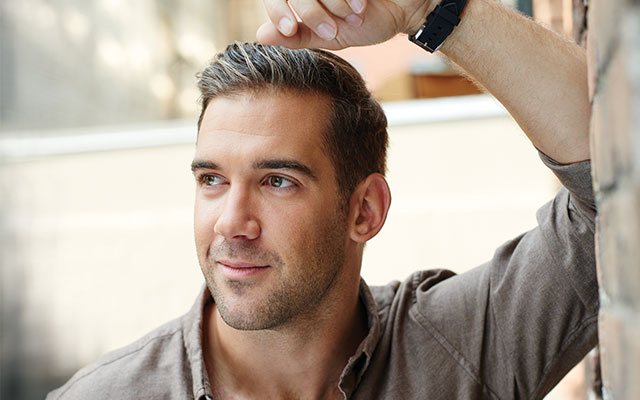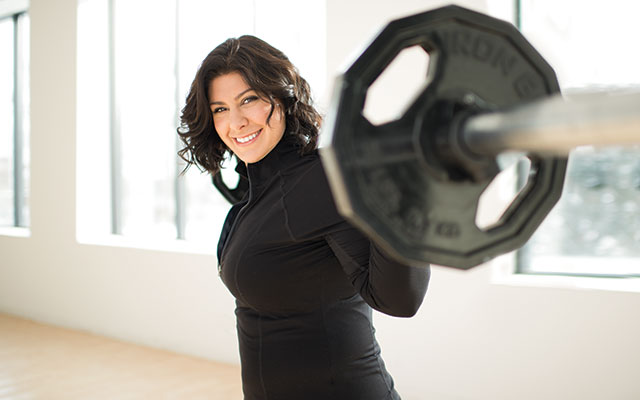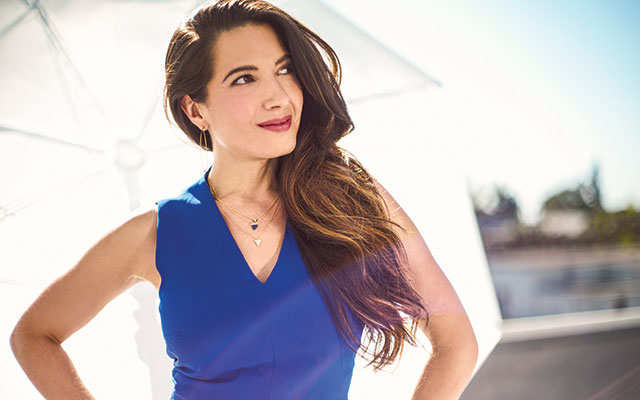It’s a classic American success story: underdog kid overcomes tough odds to excel at his chosen calling. But Lewis Howes’s tale comes with a few unusual chapters — and some very valuable lessons.
More than once, Howes has found ways to turn his tragedies into opportunities for growth and discovery. And now, as a business coach, podcast host, and author, Howes is using his experience to help others find their own bigger, better way.
Bullied and sexually abused as a child, Howes went looking for an outlet to channel his suffering into strength. He devoted himself to football and decathlon, becoming a rare two-sport All-American. But when he was 24, a serious wrist injury ended his pro-football career, drove him into depression, and left him sleeping on his sister’s sofa, searching for ways to get back into the game of life.
Knowing he needed to forge a new path, Howes dug deep: He owned his past choices, learned from his successes as well as his setbacks, and used the skills he had developed as an athlete — hustle, hard work, and a willingness to be coached — to turn his life around. More importantly, he began to believe he could win again.
“Much of the champion’s mindset comes down to belief,” Howes says. “When athletes are interviewed after winning a big game and asked, ‘How did you do it?’ they often answer, ‘I worked hard and knew no one could stop me. I am the greatest!’ Or they say, ‘I put all my faith in God.’ You’ve got to believe in something in order to take on the pressures of greatness.”
In his just-released book, The School of Greatness, Howes shares what he’s gleaned from interviewing hundreds of greats — from the worlds of sports, business, and science — for his popular podcast of the same name.
Howes argues that people at the top of their game flourish not because they’ve avoided traumatic experiences or failures, but because they’ve used specific habits and tools to overcome adversity. His own comeback sheds light on how anyone can begin a personal journey toward the discovery of his or her own best gifts.
Q & A
Experience Life | What motivated you to get into sports, and how did your motivation change over the years?
Lewis Howes | Like a lot of kids, I felt like an outsider. I didn’t have much confidence. I was the youngest of four and a gangly, skinny kid. When my brother went to prison for four years, other kids made fun of me, so I played by myself a lot.
I wanted to prove all the people who didn’t accept me wrong. I put all my negative energy into sports as an outlet, because I had to put that aggression somewhere — and it worked. That negative fuel worked to turn me into an effective winner.
This was the challenge: I would win but I’d feel unfulfilled and empty. Right after competition I’d feel lonely, and I didn’t understand why.
Years later, I realized that I was doing it for all the wrong reasons. My motivation wasn’t coming from a place of inspiration; it was coming from an adversarial, defensive place. I wanted to ensure people wouldn’t hurt me.
Once I started to shift my attitude toward inspiration, love, joy, and passion instead of anger and resentment, a weight lifted off my shoulders. It’s been an incredible experience ever since.
EL | How do you define “greatness”?
LH | Basically, greatness is making the most of the gifts and talents you were born with to achieve your dreams, and creating the maximum impact on the people in your world with those talents. It looks different for every person, though. There are a million ways to be great!
EL | You describe vision as being essential to greatness. Why? And how do we connect with our own?
LH | Without a vision, we’re just wandering from thing to thing. We’re picking up the scraps and tasks that others didn’t want in their vision, and we wind up going through life unfulfilled. We keep asking ourselves: Why am I not getting what I want? Why am I unhappy? Why am I frustrated? Why am I a victim?
To unlock your vision, you need to ask yourself a very different set of questions: What do I want every single day to look like? What do I want to create daily? Who do I want to spend my time with?
We also need to give ourselves permission to say exactly what we want and go after it. Often, we don’t feel like it’s possible or the right thing to do, and we’re concerned that others won’t support us. But we have only one life, so why spend it living the way other people think we should when we can experience the most magical time if we let ourselves?
EL | One of your eight principles of greatness is “developing hustle.” What is hustle and why is it important?
LH | According to some of the greatest psychologists and leaders in the world, a key ingredient shared by successful people is grit or perseverance. I’ve experienced this idea as “hustle.”
As an athlete, I wasn’t the fastest, strongest, or best, but I knew that coaches loved the athletes who hustled the most. I didn’t have natural gifts, but I had the mentality that I would do whatever it took — investing my body and my mind, and putting in the work — to make the team, to be a starter, and to be great.
I’ve applied this to my business and life, too. Hustling is a thing you’re doing in service. I’m willing to do whatever it takes to serve people and to show them how much I care. I’m going to network and put in the extra hours. I’m going to prepare myself more than the other person so I’m ready to take advantage when opportunities come my way.
To be great, you need to put in the work. You need to hustle.
EL | In your book, you share what you call “personal grounding statements,” which are basically very clear, positive affirmations of intention and values. Why does this kind of grounding play such a critical role in your life?
LH | Grounding lays the foundation for us to win. If we go into the big moments of our lives — a first date, a sales pitch, or a big sports game — without being intentional about what we want to create, we’re setting ourselves up for failure.
Taking a moment — be it 30 seconds or 10 minutes — to get clear on what our vision is and to consider why we’re doing something provides us a better chance to create the results we want.
EL | You focus a lot on the value of cultivating emotional intelligence. Why?
LH | This is something I so wish we were taught in school: One huge key to success in anything — be it creating a business or a family — is having strong relationships. And emotional intelligence is essential to fostering quality connections with others.
When you understand your own emotions and triggers, you can learn to be present in difficult situations and not let your emotions control you. This allows you to have a better ability to try to understand what other people are experiencing, which brings you deeper intimacy, trust, and love.
EL | Some people might consider your comeback a miracle. What can people do to create miracles in their own lives?
LH | Follow their dreams! Because what else are we on this earth to do? When we use all the gifts we have in pursuit of our dreams, we inspire our family, friends, and communities. Living our dreams allows us to make the biggest impact on others, and to me, greatness is helping the maximum number of people.
As Olympian Wilma Rudolph said, “Never underestimate the power of dreams and the influence of the human spirit. We are all the same in this notion: The potential for greatness lives within each of us.”
Photography by Kwaku Alston




This Post Has 0 Comments